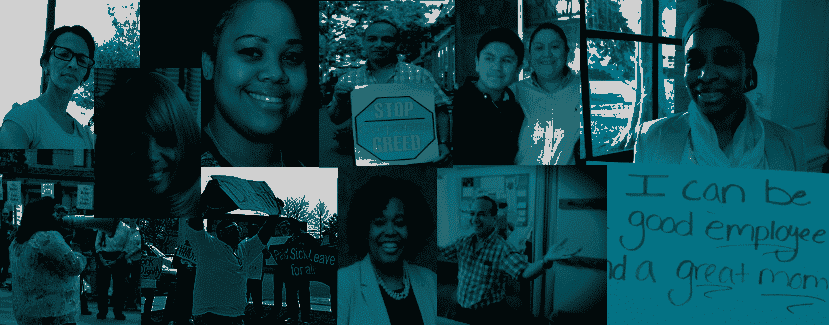Paid Family Leave: From Political Talking Point to Serious Election Issue

The online headline said it best: “DC could become best place to have a baby, be sick, or have parents.”
We may not all bear or raise children, but we all have parents or partners or other loved ones who occasionally need care from us, and we are all susceptible to an illness or injury that can turn our lives and finances topsy-turvy. We all need affordable time for caregiving – and most don’t have it.
Decades after the rest of the world figured out how to deal with paid time off, the United States is finally moving in that direction. Eight states just received grants from the Department of Labor to support family and medical leave insurance (FMLI) programs. Three jurisdictions – DC, New York, and Connecticut – may win in the coming year, and more victories are sure to follow.
New poll numbers underline the rising support for a policy guaranteeing workers can access pay while they’re out on leave. The support crosses all demographics and political lines. The biggest rise? Among Republican supporters. And more voters say the issue will influence their decisions at the ballot box.
Many factors are contributing to this momentum, including attention from the administration; involvement by a growing number of private sector partners, including business owners and health professionals; increased resources for grassroots coalitions; and more research showing the costs of doing nothing and the benefits of setting up FMLI programs. A Rhode Island Republican State Senator, Christopher Scott Ottiano, told the Associated Press in May that he had “opposed [that state’s bill] out of fear it would be onerous for businesses, but he said his thinking is ‘evolving,” Ottiano, who is a doctor as well as an elected officials, has seen how the program helped many of his patients.
But perhaps the most important driver is the ever expanding pool of activists on the front lines – people who have lived the financial and physical consequences of lacking affordable leave and come to see that change is possible if people act together.
Family Values @ Work Just completed a booklet titled, “Why I Became an Activist,” profiling a dozen leaders who became engaged through our paid sick days or FMLI campaigns.
They’re people like Nancy Yarborough in Milwaukee, Wisconsin. Because she stayed at her mother’s side when her health deteriorated, Nancy experienced a month without pay with consequences that still reverberate. She felt isolated. Then someone told her about a coalition to win a state paid leave program, and asked her to take part. Becoming engaged “helps me push pass the hurt and pain in my mother’s honor,” she said. Her daughters look up to her. Nancy described the kinds of activities she’s been doing: canvassing, making calls, giving testimony – and planning strategy.
High school student Yair Buendia in Eugene, Oregon, saw that families in his Latino community had no access to paid sick days. His mother went to work sick and he would have to miss school when a younger sibling was sick, jeopardizing his efforts to get into college. Yair felt it was “an honor to be part of the group speaking out.”
Maria Fortes is a Cape Verdean immigrant living in New Bedford, Massachusetts. She helped win earned sick time through a ballot initiative in that state. “We spoke to 4692 people,” she said. “4062 became members. We the people can truly make things happen if we organize.”
Natasha West-Baker, a former grocery store worker and now an organizer for United Food and Commercial Workers in Seattle, put it this way: “Being part of this campaign helped me find my voice and recognize that I have power, and that power can change things for the better.”
Because of activists like these, more than 10 million people newly have access to paid sick days and 17 million to paid family leave, and many more wins are on the way. And for the first time in this country, paid family leave will be more than a political talking point, as University of Virginia economist Christopher Ruhm points out. Voters are paying serious attention.